- Home
- Aharon Appelfeld
Unto the Soul Page 3
Unto the Soul Read online
Page 3
“In the world to come there are no winters like here. There it’s always summer, isn’t it?”
“Why are you talking that way?” He tried to hush her.
“Did I say anything bad?” She recoiled.
Now her face was again naked. Her face was full, like a peasant’s, and her head was wrapped in a mane of thick hair. When they had come up here six years earlier, her body had been thin. Her hair had been long and well combed. The embroidered blouse that had been a present from her late Aunt Fanka had suited her face. But since then her hips had grown fuller, her breast had swollen, and the youthful spark in her eyes had dimmed. Now she looked like a peasant woman whose husband was serving in the army, and she, in great anger, and in order to blunt her urges, would drink whenever a bottle was available.
“You had too much to drink.” He couldn’t restrain himself.
“Not a lot.” The laughter froze on her face for a moment.
Now, for some reason, he was about to walk over and slap her face. You slap a drunken woman in the face, and she sobers up, the peasants say. He had never hit her. He liked her drunkenness. Sometimes he would let her chatter as much as she liked. Occasionally the fancy words she had used in her childhood would come back to her.
“According to Jewish law it’s forbidden to drink too much,” he said perfunctorily.
“You’re right,” she said.
“I’ll make you a cup of coffee.”
“Thanks,” she said with the relieved expression of a pet that knows it has escaped with a light punishment.
He prepared a cup of coffee for her and served it the way one gives a person medicine. She reached out and grasped the cup with both hands.
“You drink too much,” he reminded her again.
“What can I do?” she said, smiling. It was a foolish smile that laid bare another stratum of her face.
“You have to overcome it,” he said in a coarse way.
Amalia didn’t take her hands off the cup. Gad sat next to her and observed her. The closer he observed her, the more her sense of amazement clung to him. Now he noticed: Her long fingers, with the protruding joints, lay in a pose similar to their father’s.
Later, without warning, she burst into tears. Gad hurriedly rose from his seat. He leaned over as though about to pick her up.
“It’s nothing,” she said and fell to her knees.
Her desperate kneeling opened his mouth. He spoke of the need to sanctify themselves, to bear life with pride, to uproot depression from their hearts.
“Pardon me,” she said.
“Why are you asking for pardon?”
“I didn’t behave properly.”
“You behaved properly. Even the holy books permit us to drink a bit so our spirits won’t flag. Melancholy is our enemy. That’s the ancient serpent with which we struggle day and night. And if a few drinks can drown melancholy, who are we to stop them?”
Upon hearing those words, a smile flashed on her rumpled face. The old smile illuminated it again.
Later he lit the lantern and went out to the shed to fetch some firewood.
CHAPTER 6
The autumn showed the strength of its arms: the wind stormed without letup. Gad tried to distract her and spoke to her with the words they had used at home. The familiar words brought a smile to her face. “I’m not worried,” he said. “So long as we have firewood, we have nothing to worry about.” And indeed the stove roared from early morning, and its white-hot sides gave off pleasant heat. During the summer Amalia had turned thirty years old. Gad had remembered her birthday, and as a present he had given her an embroidered peasant scarf that he had bought down below. Amalia had laid it across her shoulders and said, “Youth is gone, gone.” Since then, he noticed, a new bitterness had spread upon her lips. She worked obsessively from morning until late at night, and when she came up from the cellar her face was gray, like the women who work in closed workshops.
Since childhood she had hidden in the cellar. In Zhadova they had had a long, narrow cellar where she used to flee from their mother’s long, harsh arm. After she had grown up, she would still go down there secretly for two or three hours. Then a kind of will to live had flashed in her eyes. Now fat padded her body, and her smile was thin.
“Mother loved you more.” She surprised him one evening.
“It just seems that way to you.”
“She only threatened you, but she used to beat me.”
“You annoyed her. You used strange words.”
“You’re mistaken.”
“So why did she hit you?”
“She hated me.”
“You mustn’t talk that way. Mother didn’t hate her children.”
“I was a speck in her eye,” she said, pleased at having found the words to reply.
“You’re mistaken.”
“After the boys died in the epidemic she hated me. Once she told me, ‘You’re living by virtue of them.’ ”
“You mustn’t hold a person’s grief against her.”
“She wanted to kill me,” she said, smiling.
“You mustn’t talk that way.” He tried to scold her.
That evening Amalia guzzled about eight drinks, and her mouth, which had been mute for many days, opened up. She spoke in a torrent, mixing the past and the present, recalling forgotten names and reopening old wounds. It was clear: their mother still pursued her.
“You’re going too far.” He tried to interrupt her words.
“Every word is perfect truth.”
“One mustn’t say harsh things against the dead. They are there and we are here. We mustn’t disturb their rest.”
“Why did she wound me so much?”
“You mustn’t bear a grudge.”
“It pains me.”
“We have to find something positive in everyone. It’s forbidden to judge anyone until you’ve walked in his shoes.”
“I’m not going to have any children,” she said, bursting out laughing. The laughter revealed her strong white teeth.
Gad gulped down a drink, rose to his feet, and said, “The storm has let up outside. I have to see what damage the rains have done to the cemetery. But you, I beg of you, don’t drink anymore. Drinking isn’t proper for Jews.”
Amalia accepted that reproach with a smile. For years now she had wanted to share her secret with him. Now that she had revealed it, she felt relieved. She gathered her hair, and her full face, etched along its breadth with wrinkles from hard work, seemed to open up. For some reason it seemed to him that she wanted to reveal yet another secret to him, graver than the first.
“Do you promise me?” he said.
“What?”
“Not to touch the bottle.”
“May I join you?” She surprised him again.
The evening was lit with the dim lights of the cold autumn, and in his heart Gad knew it was forbidden to torment his sister any further. Her wounds were deep, and they should be dressed with a soft bandage.
“Thanks,” he said.
“What for?”
“For talking with me. Talk brings one closer, isn’t that so?”
“You are my beloved brother,” she said and immediately recoiled from the words she had spoken.
Gad chuckled as though his sister had touched his hidden weakness.
When they reached the cemetery, his eyes went dark: the strong rains had weakened the stone wall and knocked down a row of gravestones. At the sight of the flood-washed cemetery a cold groan escaped his mouth, and he said, “Great God, what has been done to us?”
“Who did it?” Amalia was shocked too.
“Can’t you see?”
Without delay he rushed to the tombstones, kneeled down, and righted them one by one. Amalia stood nearby and watched him toil. He was immersed in it, as though he was tending sick animals. Once he had wanted to erect a wooden roof over the tombstones to protect them from the winter storms, but the old men rejected his suggestion. One doesn’t erect a barrier betwe
en heaven and earth, it is said, and thus they erased the cherished thought he had husbanded for many days.
Years had passed since then. Every winter the sky fell upon the earth, flooding, uprooting, and leaving destruction behind. Gad tried to wall in the breaches, to lay buttresses behind the least stable of the gravestones, but they could not withstand the furious rains. At one time he had secretly grumbled against the old men, who had not, as it were, grasped his intention. Now he knew not even a roof would have been effective. The rain would uproot everything, including him. The sadness was palpable now and seeped through all his limbs.
After finishing the work he stood for quite a while. Three years earlier, in the same season, the winds had knocked down many tombstones. He had known it wasn’t a good sign. He was sure it had been his fault, but during the summer it became clear: an epidemic of smallpox had spread throughout the region and felled many victims.
“Everything is in place, thank God,” said Amalia. Now she knew how attached her brother was to the place, and she pitied him for his devotion and because he had to struggle all winter against the dreadful winds.
On the way back she blurted out a few sentences that sounded like words of consolation. Gad didn’t respond. A kind of cloud wrapped his face. He took hurried steps, like someone whose employer has dismissed him.
CHAPTER 7
The next day, surprisingly, a wanderer appeared on foot, a Jewish peddler, and stood outside.
“What are you doing here?” Gad addressed him the way one addresses a ghostly shadow. Were it not for his short coat, he would have resembled a lost pilgrim, but his cap and his coat showed immediately that he hadn’t come to prostrate himself upon the tombs.
“I made a mistake,” he said, like someone who had led himself astray.
“Didn’t you know the way?” Gad asked in the stranger’s tone of voice.
“I knew it, but I still made a mistake,” he said, not without accusing himself.
“And now do you know where you are?”
“So it seems.”
“You’re at the Martyrs’, may God avenge their blood.”
“Great God!” said the peddler, slapping his forehead. “What have I done?”
It was a gray afternoon, and Amalia served them cups of coffee and bread and butter. She immediately withdrew and went down to the cellar. The peddler recovered himself. Words returned to his tongue. He spoke as peddlers speak, mixing truth and wishful thinking, making things up about places and people. Gad was closely familiar with these frivolous men, but nevertheless he couldn’t restrain himself and told him about the solitude and about the dread of winter that had been Uncle Arieh’s lot and now had become his own. “If the solitude is hard for me, it’s seven times harder for my sister.” Inadvertently he revealed his hidden sorrow. While he allowed a glimpse of his pain, he regretted his words, changed his tone, and said, “How are things down below?”
“The world hasn’t changed; everything’s rotten.”
“Here there are no changes; one year follows the last.”
“But at least you make a living.”
“Not a fortune.” Gad hid nothing from him.
“I’d go away. Let the pilgrims watch.” The peddler bared his voice.
“Food isn’t lacking.” Gad tried to sweeten his words a little.
“A cemetery is no rose garden,” said the peddler, and Gad knew he had acquired that figure of speech from the innkeeper on the way, where city people stop over.
“I’m not complaining.” Gad gave his remarks a religious tone.
“I’m complaining. About unfairness and injustice. I’m complaining. I don’t bear afflictions with love.”
Now he noticed that the peddler’s face didn’t contain even a tiny flash of the fear of heaven. His face was bearded, but its expression was cold and practical. These are the sort who convert easily. The thought flitted through his head.
“How much do they pay you?” The peddler probed.
“Who?”
“The descendants of the martyrs.”
“The martyrs now belong to the Jewish people.”
“But still, who pays?”
“Whoever has something to give, gives.” Now Gad remembered that in the past summer no one had made a real contribution. The alms box had remained empty, and had it not been for the cow, the fruit, and the vegetables, they wouldn’t have had anything to eat. Nevertheless he wanted to rise from his seat and say, Not by bread alone does a man live. We, thank God, are prepared to serve the Jewish people even without any recompense. The right to live on this mountain peak can’t be reckoned in money. But seeing the peddler’s face, a profane face, a face from which faith had been extinguished, with a kind of meagerness spread on his bitter cheeks: seeing these, he stifled his voice within himself and said nothing.
“I would leave this place. Without pay there can be no watch. Never in my life have I seen a free watchman.”
“We have property rights to the place.”
“Property rights.” The peddler repeated the phrase and laughed. “Property rights to the mountain, property rights to the winter, property rights to all the treasures of nature.” Gad was filled with dread by the man’s dissolute voice and lowered his face over his cup. Afterward the peddler asked a few questions, each with a kind of hidden barb to them. Gad was cautious, spoke in general terms, and said nothing specific. The small pleasure he had taken in him progressively dissipated. Oppression gripped his breast.
Gad rose to his feet and said, “A great deal of work awaits me. I must go.” He was pleased that he had had the strength to say that without apologizing.
“I wouldn’t stay here for one day.” The peddler spoke cuttingly.
“Everyone has his task in the world.” Gad employed a saying he had heard.
Upon hearing that sentence the stranger opened his eyes, big round eyes, in which a kind of naked dampness sparkled, and he said, “I don’t sell merchandise on credit. I demand immediate payment.”
Gad didn’t grasp the enormity of his response, and when he did grasp it, a tremor passed over his spine.
“We’ll certainly see each other again.” Gad tried to distance himself from the man.
“Not in this place.”
“Where?” His tongue impelled him to ask.
“Down below. Only down below. Down below they pay for work and for merchandise. Down below there are no free watchmen. Everybody knows his place. There are no illusions. In the future I won’t get lost again. I’ve learned my lesson,” said the man, and with youthful steps he turned toward the slope.
In the evening heavy rain fell. Gad sat at the table without uttering a sound. The peddler’s short visit had left a kind of searing gloom that soon turned to self-pity. Amalia quickly prepared some vegetable soup and a savory pie with sour cream. She knew only those foods could relieve his depression.
After the meal he announced he had it in mind to go down below and fetch the supplies they would need for the winter. Amalia hated those descents of his. She knew: he let himself have more than one extra drink. But this time she said nothing. Later she said, “I’m afraid to stay alone.”
“We can’t both go down.”
“I’d rather go down and not stay alone.”
“By yourself?”
“It’s better to meet the wolf than to wait in dread.” She spoke the peasants’ language.
“I won’t permit you to go down by yourself.”
“I’m not afraid of the road. I’m afraid of the walls.”
“Of the walls?”
“The outdoors doesn’t frighten me.”
“We mustn’t leave the place unattended.” He tried another tack. “We swore to Uncle Arieh and to the generations of watchmen before us. Don’t you remember?”
“I don’t remember. When was that?”
“You don’t want to remember.”
That was the end of the conversation. Gad filled the stove with dry wood, placed a pot of water over t
he flame, and drank two cups of coffee one right after the other. It had been months since he’d touched a woman’s body. In the spring he had indeed gone down below, visited the tavern, and hoped to meet a woman on the way. But to his misfortune, none had appeared, and the appetite remained in his body like a poison and tormented him with turbid dreams. Later, when Amalia came up from the cellar, she turned to him and said, “I’m at ease in my mind. You can go down.”
“How come?”
“I’m not frightened anymore.”
“What happened?”
“I overcame my fear.”
“I don’t understand,” he said and immediately regretted misleading her.
CHAPTER 8
The following days were dark, rainy, and cold. Gad lit the two stoves and Amalia didn’t remove her old army coat, but despite everything Gad scrupulously tended the cemetery every day, even now. Upon returning home his clothes would be wet, and he would be completely dirty. Amalia would hurriedly hand him a bath towel and dry clothes. At first she rebuked him. “You’re liable, God forbid, to come down with pneumonia.” But she stopped. She realized his resolve was firm: one mustn’t leave the cemetery unattended.
By afternoon the house would already be as dark as a cave, and Gad would light the kerosene lantern and sit at the table, waiting for a bowl of soup. It took two bowls of soup to infuse his body with warmth. Sometimes, distractedly, Amalia would recall sights from her childhood and tell him. Gad said repeatedly that they had to cut themselves off from the Plain. Thoughts about the Plain aroused bad hopes, and it was better to be occupied with present concerns, to fortify the house, and to lay in a supply of water and wood. Gad himself was sometimes caught up in memories, wallowing in them with a strange pleasure. As time passed it became clear that the onset of the snows was only a matter of hours. The snow cut the mountaintop off completely from the roads and the Plain. Amalia was pleased in her heart that Gad had not gone to the village. What they had in the storeroom would suffice. In the storeroom, on shelves, lay a few bottles of oil, hunks of smoked meat, flour, and sugar. True, in the past year the pilgrims had been stingy, but they still brought something, and that little bit was added to what remained from the year before. People had not been generous, but the heavens had. The summer had been mild, the rains well timed, and the vegetable beds had produced abundantly. The trees as well had been laden with fruit. One mustn’t trust in people: today they look upon you pleasantly, and tomorrow they clench their fists as though obsessed.

 Long Summer Nights
Long Summer Nights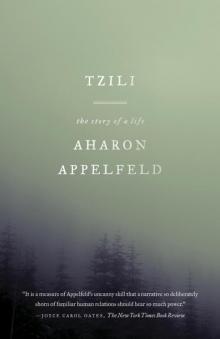 Tzili
Tzili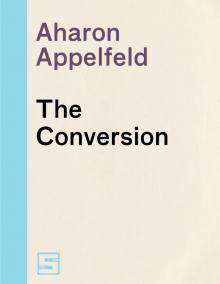 The Conversion
The Conversion The Iron Tracks
The Iron Tracks All Whom I Have Loved
All Whom I Have Loved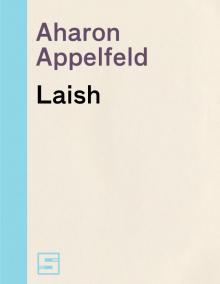 Laish
Laish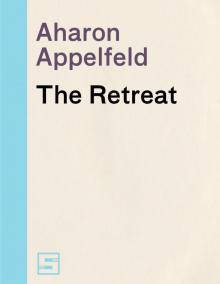 The Retreat
The Retreat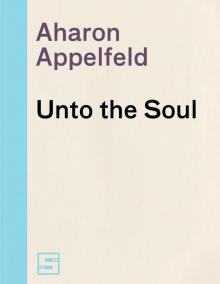 Unto the Soul
Unto the Soul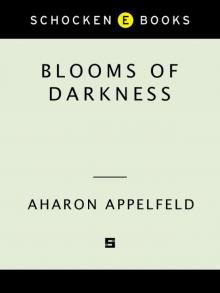 Blooms of Darkness
Blooms of Darkness The Man Who Never Stopped Sleeping
The Man Who Never Stopped Sleeping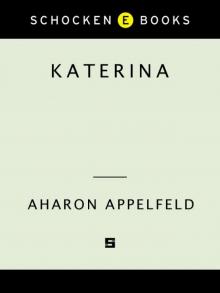 Katerina
Katerina Until the Dawn's Light
Until the Dawn's Light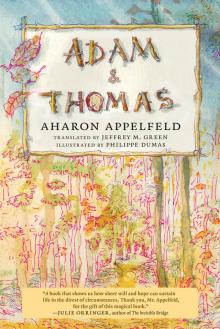 Adam and Thomas
Adam and Thomas Suddenly, Love
Suddenly, Love